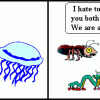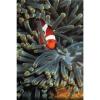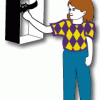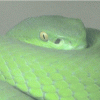Search Results
Showing results 1 to 8 of 8

The Old White Sheet Trick: Light and Insect Behavior
Source Institutions
In this outdoor, nighttime activity, learners gather around a brightly lit, white surface and study the behavior of nocturnal animals attracted to the light, particularly night fliers.

Dark Adaptation
Source Institutions
In this activity (6th on the page), learners investigate how photoreceptors in the eye (rods and cones) "adapt" to low light conditions.
Fish Eyes: More than Meets the Eye
Source Institutions
In this data collection and analysis activity, learners evaluate fish physiology and ecology using vision research data from Dr.

The Senses of "Unknown Creatures"
Source Institutions
In this activity, learners use earthworms as "unknown creatures" from the South American jungle to find out how animals use senses.

Underwater Hide and Seek
Source Institutions
In this activity, learners experience firsthand how marine animals' adaptive coloration camouflages them from prey.

Sensory Hi-Lo Hunt
Source Institutions
In this outdoor activity, learners use only their senses to to find the extremes of several environmental variables or physical factors: wind, temperature, light, slope and moisture.

Afterimage
Source Institutions
In this activity about vision and optical illusions, learners conduct a simple test to demonstrate how our eyes create "afterimages." Learners stare at a black cardboard bat for at least 30 seconds an

Can You "See" Thermal Radiation?
Source Institutions
Use this hands-on activity to demonstrate infrared and thermal radiation.
